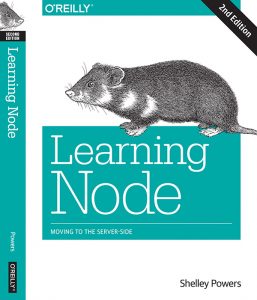I am writing a longish piece on Project 2025 and immigration. Until it’s finished, here’s a few friends from the George’s Pond area.

Just writing

I am writing a longish piece on Project 2025 and immigration. Until it’s finished, here’s a few friends from the George’s Pond area.


The second part of my Burningbird server re-awakening from the dead is my effort to find any and all past writings and import them into this weblog, one at a time.
I’ve had so many variations of weblogs: some at domains I’ve controlled, others at domains I haven’t. I was able to export the posts from many of the domains, but I haven’t loaded them back into this place. The task just seemed too daunting.
Then I realized something: I’m retired. I can do stuff like this now.
As I note in my About page, you can see many of my writings thanks to the wonderful people at the Internet Archive, and their incredibly important Wayback Machine. Still, I want the posts in one single spot, even though so many of them are so dated.
As I import the page, I set the publication date to the original publication date, which is why you won’t be seeing them here on the front page. I may, from time to time, link an older story in a new posting, for grins and giggles.
I’ve also turned comments back on, though the comment form is a bit buried with this theme. Comments close five days after I post, so make your point quickly. Your first comment will be held in moderation, but after I approve it, you should have freedom to post at will. Do let me know if you run into issues.
It’s been fun to go through the old posts. I can’t believe some of the tech way back when. And we won’t even get into the politics.

The editor for JavaScript Cookbook, 3rd edition, just sent me a draft to review and comment on. This is the last of the O’Reilly books that will feature my name on it. I wasn’t actively involved in it; my name is on it because they kept about 15% of my old content. New authors, Adam Scott and Matthew MacDonald, took on the majority of the work.
They did a good job, too. I particularly like the chapter devoted to error handling. The days of using an alert message to debug have been gone for decades, and JS developers now have sophisticated error-handling techniques and tools. It is no longer your Mom’s JS.
Good. I’m happy the language and its uses have evolved. But…
I sometimes miss the simpler days when an alert was your JavaScript best friend.
I’ve been working with JavaScript since it was first introduced over 25 years ago. Not just traditionally in the web page, either. I worked on a small project that used Netscape’s server-side JavaScript (LiveWire) in the 1990s. It was so very different from an application made with Node. as you can see for yourself from an old Dr. Dobb’s article on LiveWire.
Writing about JavaScript today requires a different mindset than writing about it years ago. Then, JavaScript was laughably simple. It’s simplicity, though, was also its strength. In its infancy JavaScript was so embraceable. You could literally toss a tiny blurb of JS into an HTML file, load it into a browser, and see an immediate implementation. You didn’t have to fiddle with compilation, installing special developer tools, or figure out a framework.
My first book on JavaScript, the JavaScript How-To for Waite Group Press was published in 1996. The hardest part of writing it was trying to find enough about JavaScript to actually fill a book.
JavaScript today, or ECMAScript if you want to be pure, is not so simple. And oddly enough, that’s its strength now: it is powerful enough to meet today’s very demanding web applications. And the hardest part of working on a book such as the JavaScript Cookbook is limiting yourself to the essentials, because you could easily write three or four books and still not envelop the world of JavaScript as it exists now.
When O’Reilly asked me to do a new edition of the Cookbook I knew I just didn’t want to take on that kind of burden again. It was hard to give up control of one of my favorite books, but after 25 years of working to deadlines and dealing with tech editors, I knew I just didn’t have the energy or patience to do the book justice. I knew it was time for me to hang up my drafts.
Thankfully, the new Cookbook team have done an exceptionally good job. I’m happy to have my name on the Cookbook, one last time.
If I write now, it’s solely for me: my ideas, my deadlines, my expectations. I may only write in this space. I may try my hand at self-publication.
Who knows? Maybe all I’ll do is write incendiary commentary in Facebook and Twitter and see how often I can get banned.

Not long ago, I received an email from a person praising one of my writings. He wanted me to know, however, that he doesn’t take sites like mine seriously because it’s a personal web site, and therefore, not credible. Because my site lacked credibility, he didn’t feel he could share the writing with others.
I was reminded of the email when I read PZ Myer’s posting today, notifying his readers that Anjuli Pandavar is no longer part of his network. PZ Myers and the other members of the Freethought Blogs are fully within their rights to remove a writer. If the writer posts pieces that violate the premise behind the site (I’ve read a few of her works at the Wayback Machine, and they surely do), it’s a good idea to remove the person rather than muddy the waters in which all of them swim. The New York Times may choose to play the all-inclusive game, most smaller sites cannot.
Still, it is a good reminder of why I now write solely in my own sites. It may get quiet around here, my sites aren’t always the most active or my writings frequently shared, and some people may question my credibility, but no one can kick me out or tell me what to write.
There are also no expectations with sites like mine. Since 1996, I’ve written about the Loch Ness Monster, the semantic web, environmental legal cases, the HTML5 standards process, animal welfare, photography and web graphics, sexism, JavaScript/Node, and now, Trump, with his miserable excuse for a White House. Oh, and RDF (Resource Description Framework).
RDF and Trump. Probably not a combination of words you would ever expect to read in your lifetime.
My only consistency in what I write is … well, none, really.

Learning Node, 2nd Edition is now in production and should be hitting the streets within a few weeks. We had a bit of excitement when Node 6.0 was rolled out, just as we entered production. However, this edition of the book was specifically designed to accommodate Node’s rather energetic release schedule, and the book survived with only minimal changes.
In this edition, I focused heavily on the Node core API, rather than third-party modules. I figured the book audience either consists of front-end developers working with JavaScript in the browser, or server-side developers who have worked with other tools. In either case, the audience wants to know how to work with Node…not this module or that. Node, itself.
My one trip into the fanciful was the chapter on Node in other environments. In this chapter, I had a chance to introduce the reader to Microsoft’s new ChakraCore for Node, as well as using Node with Arduino and Raspberry Pi, and with the Internet of Things (IoT). I figured by Chapter 12, we all deserved a special treat.
The book’s Table of Contents:
Preface
1. The Node Environment
2. Node Building Blocks: the Global Objects, Events, and Node’s Asynchronous Nature
3. Basics of Node Modules and Npm
4. Interactive Node with REPL and More on the Console
5. Node and the Web
6. Node and the Local System
7. Networking, Sockets, and Security
8. Child Processes
9. Node and ES6
10. Full-stack Node Development
11. Node in Development and Production
12. Node in New Environments
A more detailed TOC is available at O’Reilly.
I had a good crew at O’Reilly on the book, and an exceptionally good tech reviewer in Ethan Brown.